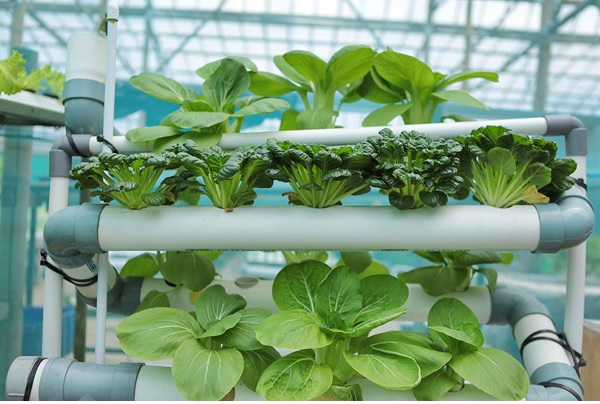Home » Hydroponics

Hydroponics is a unique method of growing plants without soil. It involves growing plants in a nutrient-rich solution that is delivered directly to the plant roots. This technique offers many advantages over traditional soil-based gardening, including better control over plant growth and yields, as well as more efficient use of water and fertilizers.
Hydroponics is a method of growing plants in a nutrient-rich solution, without the use of soil. Instead, the plant roots are supported by an inert medium, such as perlite, coconut coir, or rockwool, and are fed with a nutrient solution that is delivered directly to the roots. This allows for precise control over the growing conditions, including pH levels, nutrient levels, and water supply.
Hydroponics offers several benefits over traditional soil-based gardening. For one, it requires less water, as the nutrient solution can be recycled and reused. Additionally, it eliminates the need for pesticides and herbicides, as the plants are grown in a controlled environment with no soil-borne pests. Finally, hydroponics can lead to higher yields, as plants receive a constant supply of nutrients and water, and grow more quickly than those grown in soil.
Types of Hydroponic Systems: There are several different types of hydroponic systems, each with its own advantages and disadvantages. Some popular options include:
In conclusion, hydroponics is a fascinating and innovative method of growing plants without soil. With its many advantages over traditional gardening, including better control over plant growth and yields, more efficient use of water and fertilizers, and the elimination of soil-borne pests, it is an excellent option for anyone interested in sustainable and efficient gardening.
Dr. Ravi Prakash Mishra
Associate Prof./ Head
School of Agriculture
June 19, 2023RECENT POSTS
CATEGORIES
TAGS
Agriculture Agriculture future AI Architecture artificial intelligence Bachelor of Commerce BA English BA Psychology BTech AIML BTech CSE BTech cybersecurity BTech Engineering Business management career Career-Specific Education career guide career option career scope Civil engineering commerce and management Computer Science Computer science engineering Data science degree education Engineering Engineering students English Literature english program Fashion Design Fashion design course Higher Education Journalism journalism and mass communication law Law career Machine Learning mathematics MBA MBA specialization Mechanical Engineering Pharmacy Psychology Research and Development students
Lingaya's Vidyapeeth (LV) only conducts physical/online verification of any document related to examination on the following official email IDs:
It is important to note that the following email IDs and domains are fraudulent and do not belong to our university:
Please do not respond to or share any personal information with these fraudulent sources.